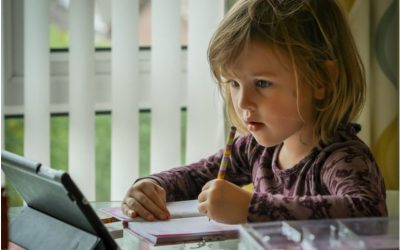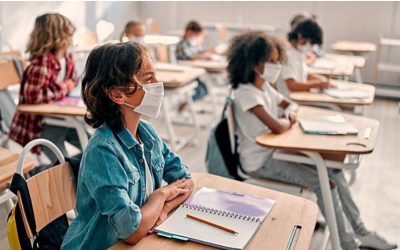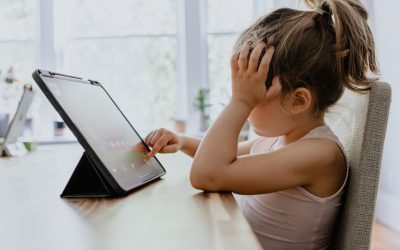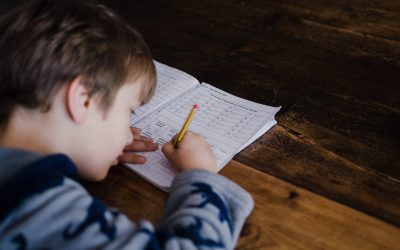Covid-19 Education News May 18 – May 22
25 May 2020 | News
In this week’s news:
- Primary schools in the Netherlands will open again for full classes on full days (conditionally) from 8 June, but a poll by CNV Education shows that 49% of the respondents are not pleased with the decision, because of concerns over feasibility of meeting hygiene guidelines. Secondary schools are scheduled to partially open on 2 June with similar concerns raised and a number of schools already stating they will remain closed until after the summer.
- Now that national exams are cancelled in many countries, alternative ways of testing are being devised with an emphasis on formative assessment to remediate possible learning gaps. In many countries, teacher assessments or past outcomes on standardized tests are now used to decide on promotion and qualification.
- Countries such as the United States and Spain are considering organizing summer schools to catch up. However, it is unclear which students are eligible for summer school; what educational programs should be offered; and how to determine the effectiveness of such programs and communicate them to parents and teachers. Effective summer school programmes meet similar conditions as regular teaching: full attendance of students for at least 5 weeks, a qualified teacher and a rigorous curriculum.
Prof. Dr. Melanie Ehren & Rukiye Turkeli
25-05-2020


Concerns about the opening of primary school for full classes and days & secondary schools
Regular primary education will be fully open again from June 8th in the Netherlands, Prime Minister Mark Rutte announced during the press conference on May 19. A final decision will be made in the week of 1 June. For this opening, and how schools can safely meet the hygiene guidelines of the RIVM in a school, a new protocol is being developed by the council for Primary Education with the Ministry of Education, which can be found at www.weeropschool.nl.
Although the council for Primary Education states that it is pleased with the full reopening of schools, the poll by CNV Education shows that 49% of the 7000 respondents prefer not to open schools for full classes on full days until the summer. CNV Education argues for more time to implement and consult on the feasibility of the guidelines, such as washing hands with 30 children six times a day. According to the CNV, the safety and health of students and school staff must remain the priority.
It was also previously announced that secondary schools and secondary special needs schools can partially open under certain conditions from June 2nd. However, a few secondary schools have decided to start teaching face-to-face lessons only after the summer holidays. These schools explained to the General Education Association (AOb) that it will continue distance learning until the summer holidays. However, the schools do allow students to enter the school building for specific school activities, such as assessments and individual coaching sessions. Still to be decided is whether students with special needs can receive face-to-face education. Some secondary schools expect a second wave of COVID-19 infections and assume they will not be able to open after the summer holidays .
Both in primary and secondary education, parents and educational staff are concerned about whether children and teachers can keep a sufficient distance from each other, since many classrooms in secondary schools are not large enough for a 1.5-meter set-up. Students are also expected to keep their distance during break time and many expect this to be unfeasible. Solutions in other countries, such as Denmark, are to teach outdoors to reduce the risk of virus spreading, or to provide lessons in other locations such as church buildings.
Exams and tests, with examples from other countries
In the Netherlands, previous assessments and teachers’ judgements will decide whether students will graduate now that central standardized exams have been cancelled. The council of Secondary Education has developed guidelines to ensure due process.
The International Association for Educational Assessment (IAEA) has published a summary of the current method of assessment and examination in various countries. In Ghana, Hong Kong, Liberia and Israel, exams have been postponed for the time being. In England, central school exams (for both primary and secondary education) for the current school year have been cancelled and instead teachers are asked to rate the final grades students would have obtained if courses and assessments had proceeded as normal. A few states in the US, such as Tennessee and Michigan, emphasize the formative function of testing and providing feedback to students and their parents via email. Students are supported in distance learning via so-called ‘homework hotlines’. Standardized testing in all states of the US has also been cancelled and replaced by abbreviated online home tests.
Remedy for learning gaps: should we use summer schools?
Last week, the Dutch cabinet announced a programme of 224 million euros to remediate learning loss and support vulnerable students when schools reopen. Schools can apply for a grant and propose context-specific interventions, such as summer schools or after school programmes.
A blog from RAND evaluates the effectiveness of summer schools and how these should be designed and implemented. Important conditions are to consider the time and resources parents and school staff need to invest when running a summer school and whether they are able and willing to make such investments. There must also be clear criteria for which students are eligible to attend. The most effective programs, according to RAND, contain five weeks or more of programming, consistent student attendance, small class sizes, and certified teachers with grade-level and subject-matter experience.
See also information for:
Most recent blogs:
How LEARN! supports primary and secondary schools in mapping social-emotional functioning and well-being for the school scan of the National Education Program
Jun 28, 2021
Extra support, catch-up programmes, learning delays, these have now become common terms in...
Conference ‘Increasing educational opportunities in the wake of Covid-19’
Jun 21, 2021
Covid-19 has an enormous impact on education. This has led to an increased interest in how recent...
Educational opportunities in the wake of COVID-19: webinars now available on Youtube
Jun 17, 2021
On the 9th of June LEARN! and Educationlab organized an online conference about...
Homeschooling during the COVID-19 pandemic: Parental experiences, risk and resilience
Apr 1, 2021
Lockdown measures and school closures due to the COVID-19 pandemic meant that families with...
Catch-up and support programmes in primary and secondary education
Mar 1, 2021
The Ministry of Education, Culture and Science (OCW) provides funding in three application rounds...
Home education with adaptive practice software: gains instead of losses?
Jan 26, 2021
As schools all over Europe remain shuttered for the second time this winter because of the Covid...





